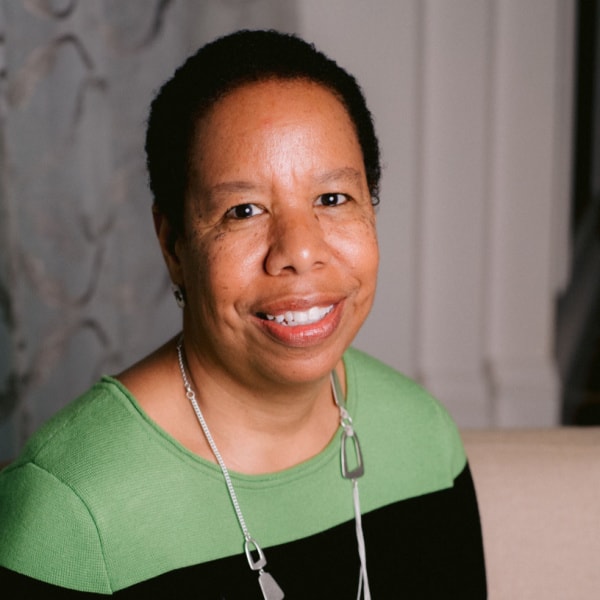My Very Best Career Move
(This page may contain affiliate links and we may earn fees from qualifying purchases at no additional cost to you. See our Disclosure for more info.)
Because it was a village called Zhombe and it was in Zimbabwe, I had arrived, alphabetically speaking, at the end of the world. And it was the best career decision I had ever made.
In 1991, I was hired by the San Francisco branch office of a major Wall Street firm (since defunct) while I was completing my MBA in finance in the evenings.
Working with government bond salesmen (they were all men), my stated job was administrative support. My real job was to watch and listen and learn.
A couple of years later, degree in hand, I was promoted to an analyst position at their New York headquarters. And so, I was on my way…
Wall Street in the early to mid-nineties was on the heels of the previous decade's introduction of Gordon Gekko and leveraged buy-outs to the public discourse, and just before the glamorous rise and fall of dot-coms.
Wall Streeters were not regarded as the “good guys.”
But then, as now, there was some amount of public fascination with the prominent personalities.
And the money, of course. (Much less of it then than now, but still…)
So, you can imagine that when I pulled up stakes after four years in Manhattan and joined the Peace Corps, there were questions.

What was I Thinking?
It was the best career decision that I had ever made.
I did not actively dislike my investment bank career. But I did not have any particular affection for it either.
I enjoyed the salary, obviously, but it wasn't enough to compensate for that familiar-to-many Sunday night ennui, or even dread when you realize that you're on the cusp of yet another work week.
So why Peace Corps?
I knew that I wanted to travel. Not just for vacation, but to live overseas for an extended period.
I had a broad interest in the economics of developing countries. But that's all I knew. I had not a lick of practical experience in any of this.
Nor did I know what kind of job I wanted or even who an appropriate employer might be.
I solved the conundrum by finding an “employer” that checked my most essential box – the opportunity to work overseas in a job broadly related to economic development.
The trade-off was that I wouldn't receive pay, an unconventional choice in your mid-thirties.
I was fortunate; a few years at an investment bank meant that I could afford a break from paid work.
My New ‘Career’
Working for a United Nations-funded NGO, my job was to advise new entrepreneurs as they established their businesses.
The most important lesson I learned was that P&L statements and competent marketing strategies had very little correlation with business success.
Instead, it was essentially the confluence of political intrigue, macroeconomics, and social norms that drove the developing businesses' outcomes.
Peace Corps was immediately followed by another tour through graduate school. Then, finally, an 18-year career as a foreign service officer.
That career would not have happened without making the initial investment in Peace Corps.
Those two years in Zimbabwe gave me the information I needed to uncover the specific aspect of international economic development that could be my passion.
It provided a “proof of concept” that I could enjoy living in a developing country.
In Zimbabwe, I came to understand who the different players are in the international development “industry” and where my skills would fit in best.
I believe the general contours of my experience, if not the specifics, are broadly replicable.
The biggest obstacle to making a career switch can be the very understandable compulsion that you need to know exactly what the next chapter will look like before you take the plunge.
Not being able to completely articulate that future state can easily lead to paralysis.
Becoming a Peace Corps volunteer was obviously not going to be my ultimate next career. Rather, I identified a next step that responded to the two things that I did know I wanted.
I used the information I gained at my Zimbabwe career way station to decide where to go next.
Financial Aspects
The personal finance part of my experience is also generalizable.
While fully acknowledging that I had the great benefit of a well-paid job for several years, nevertheless, I was considerably aided by the fact that I had consciously chosen less expensive (and yes, less prestigious) schools for both my bachelor's degree and MBA.
At the time of those decisions, I did not have the slightest clue that my path would lead to the Peace Corps. Still, I instinctively put a high value on maintaining flexibility.
I could pull up stakes not because I had a particularly large savings account. But because I was unencumbered by debt.
A zero salary intermediate step may not be realistic for many. But the choices that you make now can allow you the freedom to flex later.
Final Thoughts
I said that joining the Peace Corps was my best career decision.
But in retrospect, perhaps it was the collection of micro-decisions in the preceding years that were the “best decision.”
Those are what provided the financial and emotional ballast to take that tremendous leap of faith.
Next: Becoming Financially Independent Means…

Article written by Lisa Whitley, AFC®, CRPC®.
Lisa enjoys having money conversations every day with people from all backgrounds. After a long career in international development, she brings a cross-cultural dynamic to her current work to help individuals and families achieve financial wellness.
